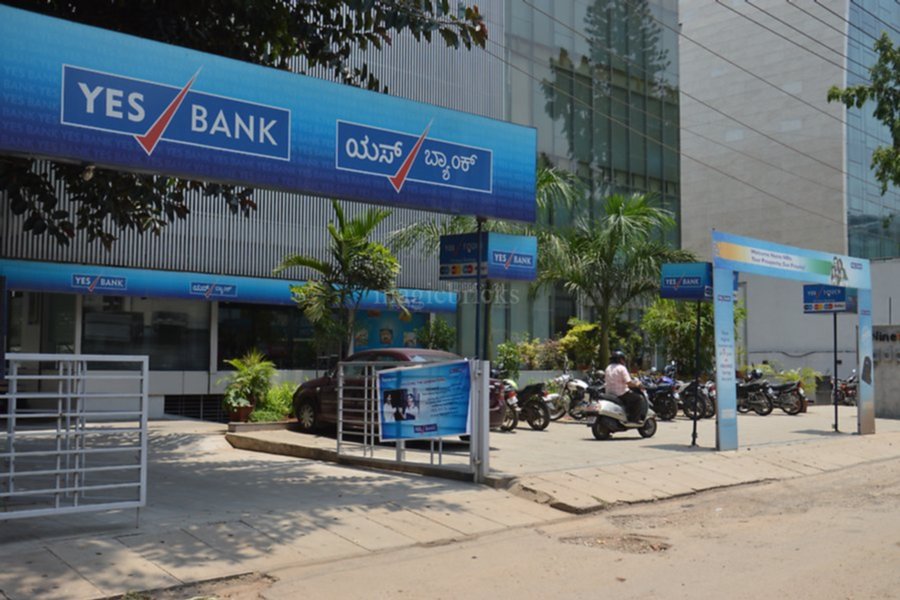Yes Bank is a private sector bank that was founded by Rana Kapoor and Ashok Kapoor in the year 2004. Ever since its operations as a bank, the Yes bank gained a lot of appreciation as it becomes one of the fastest growing banks in India. Yes Bank is the Fourth Largest Private bank in India. There are other banks that had started their operations with the Yes Bank but among them, only Yes Bank become the most successful of them.

Recently, RBI raised an issue against the three-year extension of the CEO Rana Kapoor period as a CEO. RBI asked the bank to end the tenure of Rana Kapoor as MD and CEO by January 2019. This created a huge drop in the stock market for the Yes Bank Shares and led many to withdraw their money from the market as far as the Yes Bank shares are a concern but this huge downfall can be profitable for some investors. How? Let’s find out.
Yes Bank Business
Yes Bank revenue is generated mostly by arranging syndicated loans and through corporate banking. There are three operating entities-
- Yes Bank
- Yes Capital
- Yes Asset Management Service
It is further bifurcated into various services offered by the bank to the customer-
- Corporate and Institutional Banking
- Commercial Banking
- Investment Banking
- Corporate Finance
- Financial Marketing
- Retail Banking
What caused this sudden drop?
This sudden drop in the stock price of the Yes bank shares to as low as 166.20 per share is very low considering its performance in the public banking Sector. The mains reasons of the sudden drop in the shares are a series of events that led the bank in such state-
Rana Kapoor Term Extension
Yes Bank asked the RBI for the Extension of three years for the bank’s CEO Rana Kapoor but RBI declined and further asked the bank to create a successor plan. This created a huge question on the corporate governance for the analyst and hence caused the shares to drop down.
The resignation of the three Board of Director
The situation got even worse when the three board members Ashok Chawla, Vasant Gujarati, and Rentala Chandrashekhar resigned from their designated board membership in November which further raised the question of Bank governance.
Yes Bank NPA loans
When a bank approves a loan then the loan is considered an asset in the books for the bank and liability for the borrower. When the loan is not paid back by the borrower for more than 90 days then the asset is considered to be NPA (Non-Performing Asset). In March 2017, The gross NPA of the Yes Bank was Rs.8374 crore, but the Yes Bank reported the NPA to be Rs. 2018 Crore which created the divergence of Rs. 6356 crore. The difference of 4 times the amount reported is a huge concern for the bank reputation and this further led to the backing off of the investors.
Yes Bank Shares
Yes Bank share was introduced to the market in the year 2005 at the opening price of Rs.12.37 and ever since it does not disappoint their investors. The present shares price of the Yes Bank Stock is Rs. 166.20 as of 10 Dec 2018. The average stock price was around Rs.382 after which the amount suddenly dropped to Rs.206 (Oct 2018) and downgrading ever since.
Yes Bank Shares Future Projection
Yes Bank shares dropped due to a lot of negative controversy regarding the banking operations. Which led the bank’s shares to drop to the lowest and further will drop if the controversy further persists, this is the opportunity for investors who seek a long-term investment in the market as Yes shares will go up after all the controversy will shade off.
For the Bad NPA of the Yes Bank, this is not a huge concern as the bank has solves around 80% of the divergence caused due to the NPAs by either selling or recovering the debt from the borrowers. The main reason for the Yes Bank Shares got such a hit is the breach of trust of the investors on the banking operations. The Yes Bank Shares will rise as soon as the bank heads will be appointed and the controversy regarding the banking operation will shade off. Another aspect is that bank must consider the no occurrence of NPAs with such a huge divergence.
I’m Shiv Kumar, a graduate with a passion for finance, marketing, and technology. My journey into finance started with a desire to understand money management and investing.
Our main goal is to empower individuals through financial education. We believe that everyone should have the opportunity to build a strong financial foundation. Whether you’re a seasoned investor or just getting started, we provide articles, guides, and resources to help you navigate the financial landscape.
I invite you to join our community of financially savvy individuals. Feel free to ask questions, engage with our content, and explore the topics that matter to you. Together, let’s take control of our financial futures.



